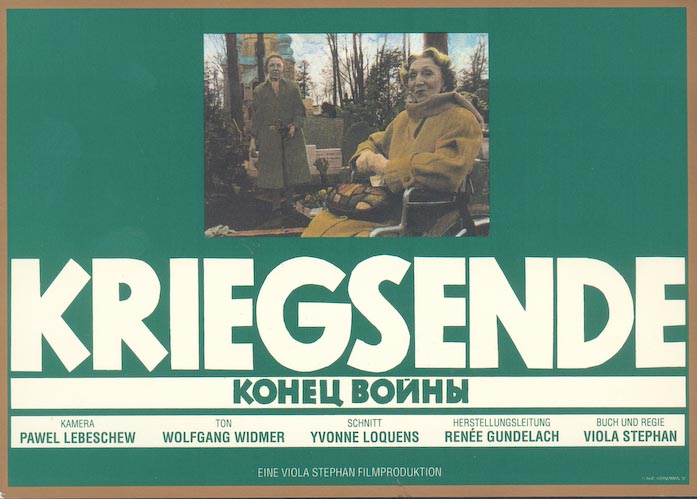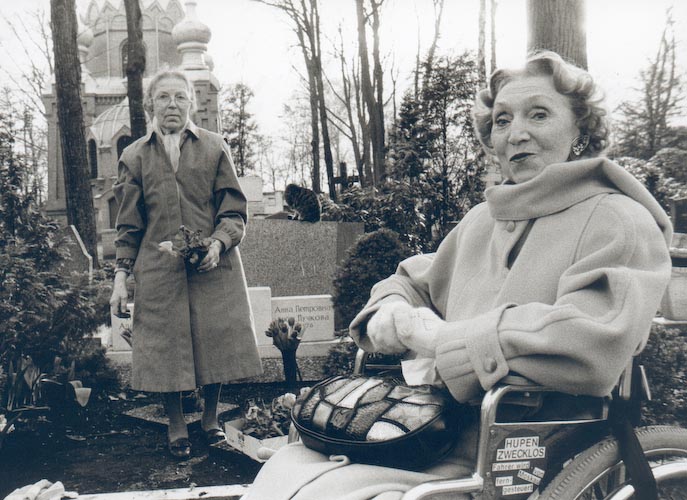War's End
Kriegsende
1992, 90 min, 35mm, colourPhotographed by Pavel Lebeshev
Produced by Viola Stephan Filmproduktion
Distributor: Freunde der Deutschen Kinemathek
Premiere: International Film Festival Hof
CONTENTS:
In the 1920's the Russsian philosopher Nikolai Berdiayev wrote: Berlin is the westernmost city of the East and the easternmost city of the West.
Berlin has always been the first stop of the Russians on their way to the West, whether to Paris, to London or to Prague.
It became a new home to the persecuted, the restless and, not least, to the occupying forces.
Berlin was even then considered an open city, a city in motion without very strict social forms and with room for outsiders, a city of come and go. Today in the aftermath of the Cold War one again hears Russian spoken in Berlin.
It seems that the east has shifted closer.

For the third time in this century, there is the aftermath of war.
It is a film about those who are coming, those who have settled, those who are leaving; it treats disruptions in a scarred city.
ORIGIN OF THE FILM
The idea to shoot a film about Berlin with a Russian team arose during work on the documentary THE JOURNEY FROM PETERSBURG TO MOSCOW with cameraman Pavel Lebeshev last year.
Two points of view present themselves: the Russian view differs to the German.

Equally evident was the fact that occurrences there would affect our lives.
Back to Berlin, ever the city of settled-in-strangers.
With the opening of borders, withered arteries to the city from the East seemed revitalized.
These new conditions spawned to make a film about Russians in Berlin.
Certainly Russians lived in both sectors of the city in very diverse circumstances; in the East in barracks, hermetically sealed off and not well loved, in the West, which held the idea of Russia as an occupied land, emigrants estranged by the Soviet state.
Then there were the Jewish refugees of the last wave of emigration.
The film's point of deparature was to investigate old and newly emerging relationships in the lives of Russians in this city.
The film was shot between October, 1991 and March, 1992 in the eastern and western districts of Berlin; in the region around the Soviet garrison in Potsdam; in a military train running from Wünsdorf to Brest; at the Russian border in Brest and the German border in Kienitz on the Oder River.
